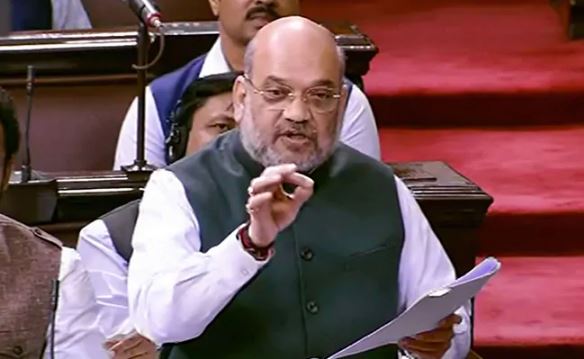New Delhi: The Lok Sabha passed the Citizenship (Amendment) Bill 2019 Monday night after a prolonged and heated debate on the issue. Soon after the government introduced the controversial Bill in the Lok Sabha, the Opposition raised objections, calling it “fundamentally unconstitutional” and in “violation” of Article 14 of the Constitution.
Following over an hour’s debate on the Bill’s legislative competence if it can be taken or not, the House allowed it after division of votes with 293 in its favour and 82 against.
Introducing the Bill, Union Home Minister Amit Shah rejected allegations of Opposition members, saying: “I assure that the Bill does not violate any Article of the Constitution and that no citizen will be deprived of one’s rights.”
“Every citizen has been given a place in the Bill on the basis of reasonable classification.”
He said the Bill seeks to provide Indian nationality to Hindus, Christians, Sikhs, Parsis, Jains and Buddhists fleeing persecution in Pakistan, Afghanistan and Bangladesh. The Minister said that the Bill has been introduced after analyzing the constitution of Pakistan, Afghanistan and Bangladesh.
Referring to the Nehru-Liaquat Ali Khan agreement signed in 1950 after the partition of India and Pakistan, Shah said it was agreed to protect the rights of minorities, but only India followed it. Hindus, Christians, Sikhs, Parsis, Jains and Buddhists faced atrocities in Pakistan, Afghanistan and Bangladesh.
“The Bill is for those minorities who faced religious persecution in Pakistan, Afghanistan and Bangladesh,” Shah said.
The minister clarified as Muslim community was not persecuted in the three Islamic countries, the Bill specifically mentions to provide citizenship to six religious persecuted minorities. “The people of the six minority communities who migrated to India following religious persecution in Pakistan, Bangladesh and Afghanistan will be given Indian citizenship as per this Bill. They are being given citizenship on the basis of reasonable classification. The Bill does not violate Article 14 of the Indian Constitution.”
But, Shah said, the Bill is not against Muslim community and that if any Muslim seeks citizenship in India based on rules, he will be entertained as per the Article of the Bill.
Major Opposition parties, including Congress, Trinamool Congress, Revolutionary Socialist Party, DMK, All India Majlis-e-Ittehad-ul-Muslimeen (AIMIM) and Indian Union Muslim League (IUML), opposed the Bill citing various Articles of Constitution.






































